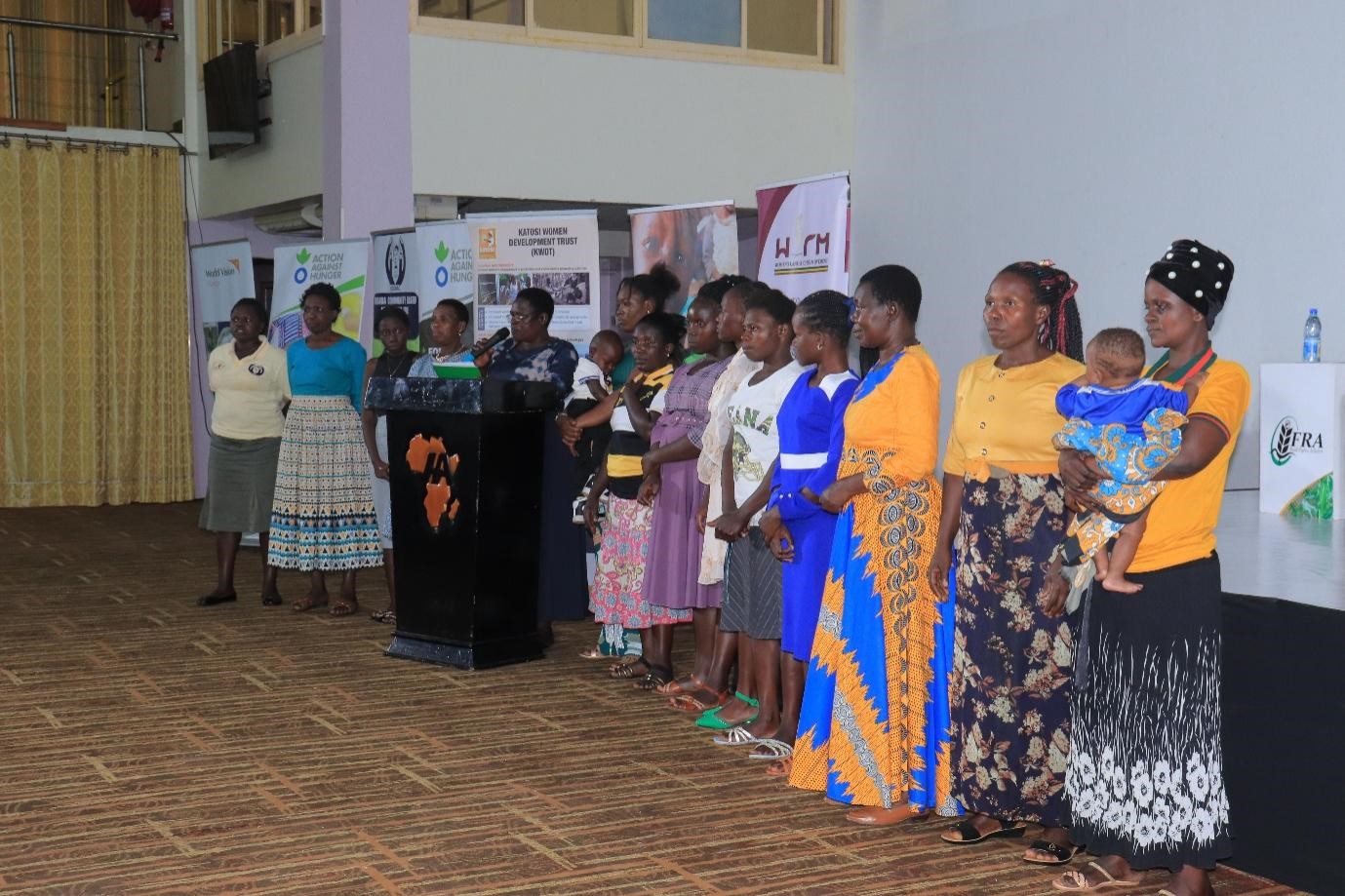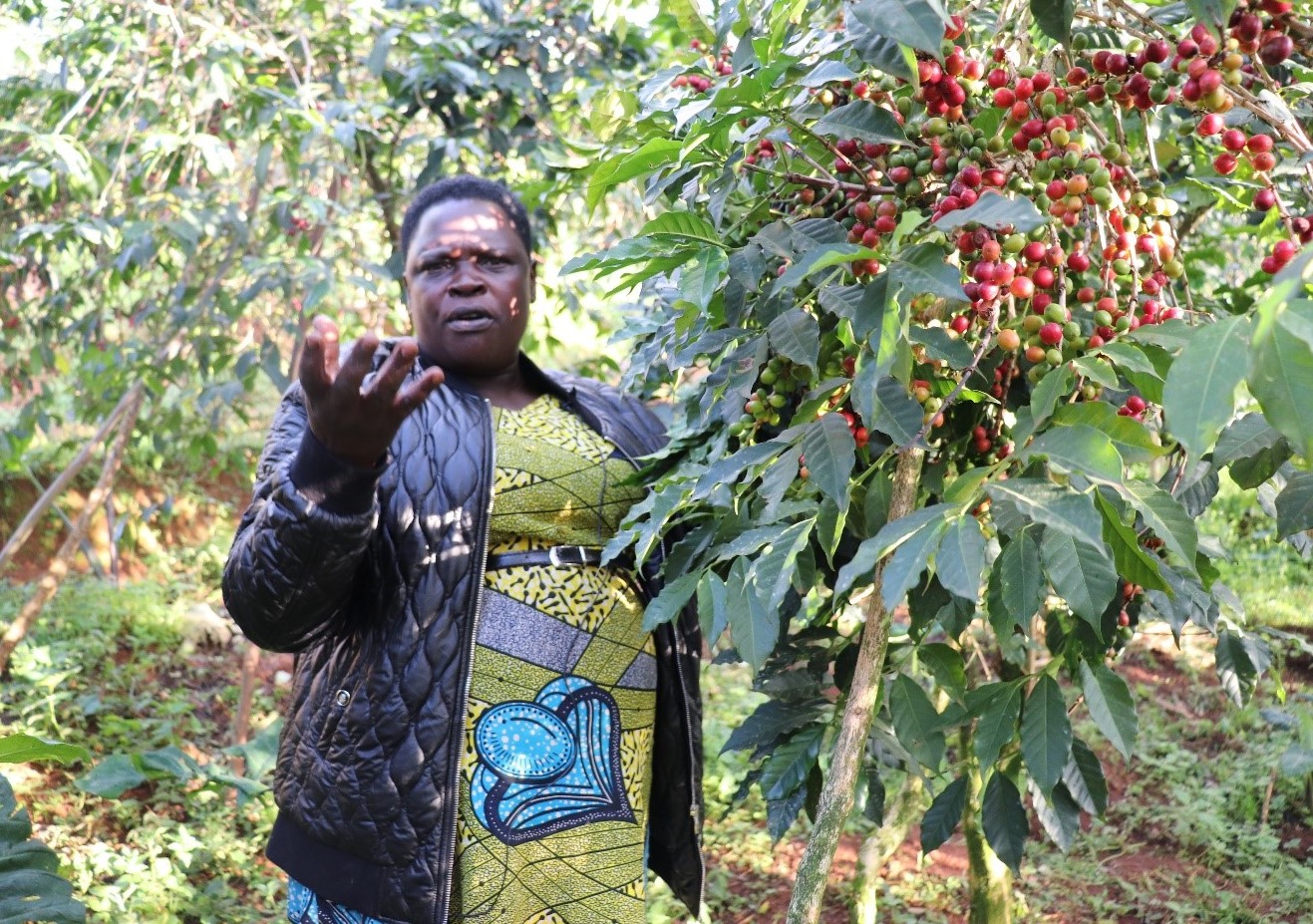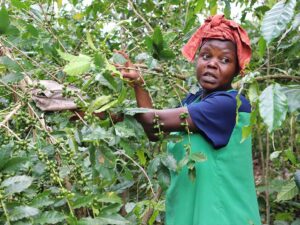
The National Gathering for Women in the Agrifood System, a significant event held on 12th April 2024 at Hotel Africana, was a collective effort by Food Rights Alliance (FRA), Action Against Hunger, SNV, World Vision Uganda, LANDnet Uganda, Katosi Women Development Trust, Caritas Uganda, Uganda Community Based Association for Women and Children’s Welfare (UCOBAC), and SEATINI Uganda. This gathering, held under the theme of ‘Women and Girls Leading against Hunger and Malnutrition,‘ served as a beacon for amplifying women’s voices and experiences. It advocated for policies and interventions that promote gender equity and women’s economic empowerment across sectors in Uganda, reinforcing the importance of inclusivity within Uganda’s agrifood system.
Participation in the event was enthusiastic, bringing together 300 women from eastern, Kigezi, central, and west Nile representing diverse sectors, including coffee production, dairy farming, academia, policy-making, and exports. This convergence provided a fertile ground for women’s voices to shape the discourse surrounding agrifood systems, addressing challenges and exploring avenues for progress and advancement.
At the gathering, one of the focal points of discussion was the discussion on opportunities and challenges women face in coffee value addition enterprises. While coffee is Uganda’s second major cash crop, contributing significantly to foreign exchange and livelihoods, women encounter formidable challenges such as restricted market access, high certification Costs, financial constraints, and technological barriers. One participant from the Elgon mothers group shared an experience where women are often sidelined in the coffee value chain. They are left to carry sacks of coffee on their backs to the markets while the men reap and manage the financial benefits.
Below is a quote from one of the women from the Elgon region.
“We resorted to stealing a few kilograms of coffee from each harvest as our husbands controlled all harvest proceeds without involving us in deciding how to use finances from the coffee sales.”
They also noted that through their journey with Non-Government Organizations, they are starting to engage in educational efforts on gender-based violence, joint decision-making with their husbands, and began planning collectively for their families’ well-being and development.
In response, stakeholders like Ms. Ejalu, Deputy Executive Director of the Uganda Bureau of Standards, acknowledged efforts to streamline the certification process and encouraged women to join groups to disseminate certification messages quickly in coffee value addition. This recognition of the women’s efforts and the call to action for the stakeholders to do more underscores the crucial role that each stakeholder plays in promoting women’s economic empowerment in the coffee sector.
Insights from other notable speakers, Hon. Linda Auma, the vice chairperson of Uganda Women’s Council, Mr Benard Mujuni, the commissioner of Equity and rights at Ministry of Gender Labour & Social Development – MoGLSD, and Her Excellency Rhoda Peace Tumusiime, the former Commissioner of Rural Economy and Agriculture at the African Union underscored the pivotal role played by women in Uganda’s agricultural landscape, highlighting their composition of 53% of Uganda’s agricultural labour force and their multifaceted contributions as cultivators, processors, marketers, and caregivers despite their efforts being undervalued and overlooked.
The representative of the Permanent Secretary Ministry of Local Government, Mr Kapwepwe, elaborated on several opportunities in government programs such as the Parish Development Model Program (PDM) for women in the coffee value chain, commending women for actively exploiting the opportunity to participate in groups and assume leadership roles within the PDM framework. Furthermore, he singled out coffee as an enterprise being promoted by the PDM program and encouraged women to join groups to benefit from the PDM opportunities.
In conclusion, the National Gathering of Women in the Agrifood System was a pivotal platform for amplifying women’s voices, addressing challenges, and charting a course toward empowerment within Uganda’s agrifood system.
The women in coffee production put across a strong call to action with recommendations for the promotion of inclusive policies and engagement in technology advancement for value addition, increasing marketability, and protection from exploitation by middlemen, rehabilitation of existing road infrastructure to connect grass root women to markets, support women’s cooperatives and networks on coffee, promote digital inclusion: Grassroots women require access to digital technology to participate in markets beyond their localities, enabling networking, electronic extension services, and access to finance, support formalization of women-led agribusiness.
By embracing the recommendations and leveraging opportunities such as the PDM program, Uganda can foster an inclusive and thriving agrifood ecosystem driven by the empowerment of its women.
By Julian Amanya
Programme Assistant Women in Agri FOOD Systems
Food Rights Alliance



